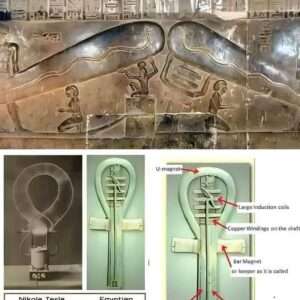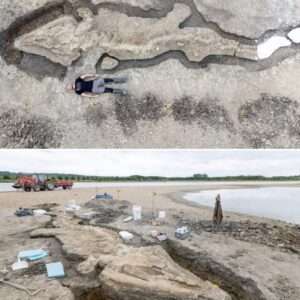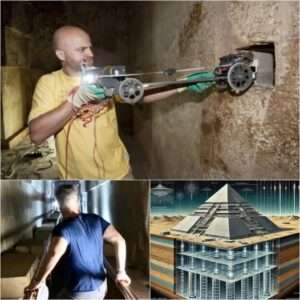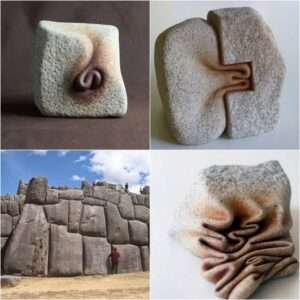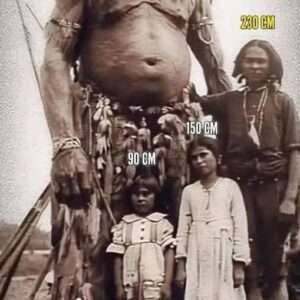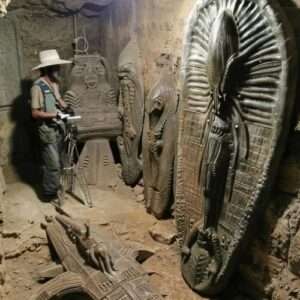In 2016, archaeologists made a remarkable discovery at the Must Farm site in Cambridgeshire, England—a bronze socketed axe dating back to 1000-800 BCE. This ancient tool, complete with its charred wooden handle, was preserved in the river silt after the Bronze Age settlement was tragically destroyed by fire. The preservation of the wooden handle is an incredibly rare find, offering a tangible connection to the people who once lived in the settlement.

Must Farm, often referred to as “Britain’s Pompeii,” is renowned for its exceptional state of preservation, allowing researchers to uncover unprecedented details about life during the Bronze Age. The site, which had been built on wooden stilts over a river, was quickly submerged after the fire, leaving behind an extraordinary array of artifacts.
The bronze socketed axe is now housed in the Cambridge Archaeological Unit and is an invaluable artifact that sheds light on the daily lives of the Must Farm inhabitants. Its design reflects the practical needs of the community—used for woodworking, farming, or construction—and its discovery helps to piece together the broader picture of Bronze Age craftsmanship and trade.
But beyond its utilitarian function, the axe’s charred handle tells a deeper story of the settlement’s sudden demise. The fire that consumed Must Farm forced the collapse of the buildings into the river, preserving many of the tools, weapons, and household items in their final moments. This unique preservation allows archaeologists to study not just isolated artifacts, but the entire context of the settlement, providing insights into the domestic life and environment of ancient Britain.

As one of the best-preserved Bronze Age sites in the country, Must Farm offers a rare glimpse into a world long gone. Each artifact, including this bronze axe, adds to our understanding of the technologies, materials, and day-to-day activities of the people who lived there over 3,000 years ago.
The axe, with its blend of metal and wood, serves as a symbol of both the skill and the tragedy of this ancient community. As excavation continues, we can only imagine what other treasures remain hidden, waiting to tell the story of Britain’s Bronze Age past.
